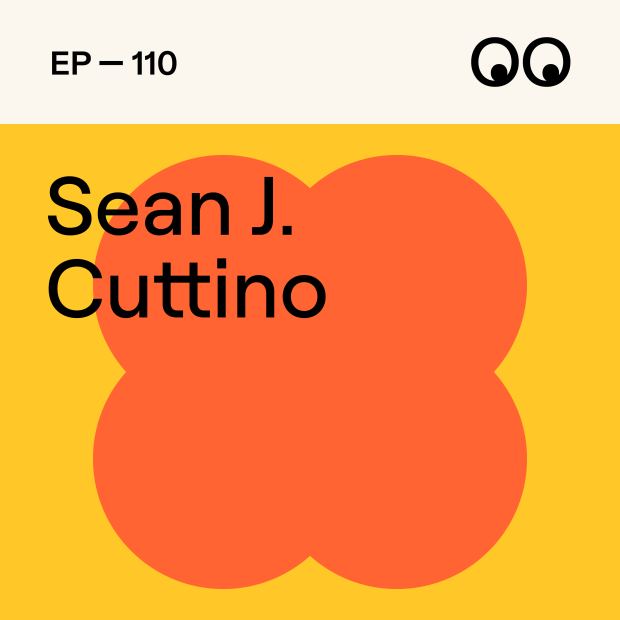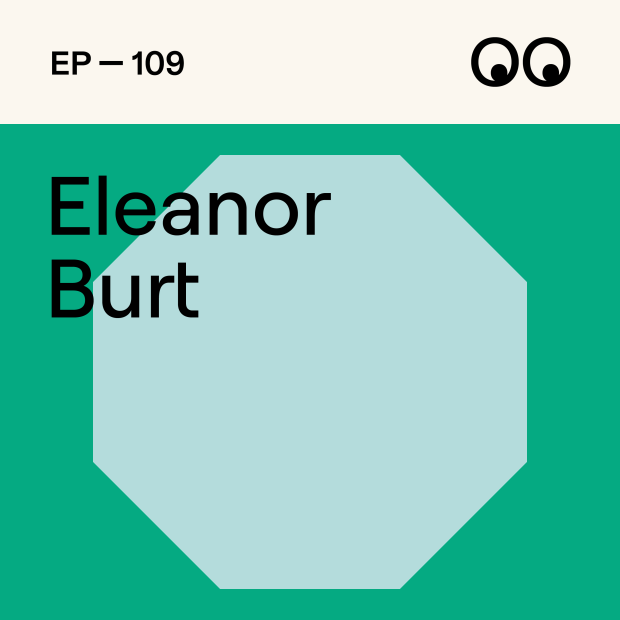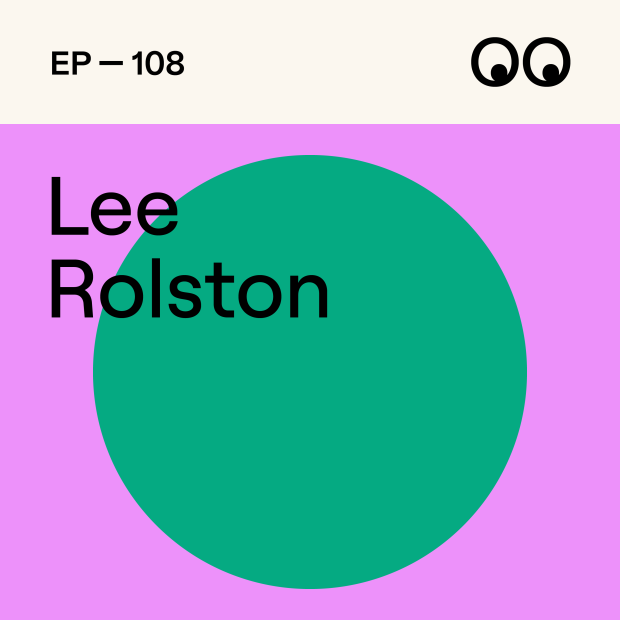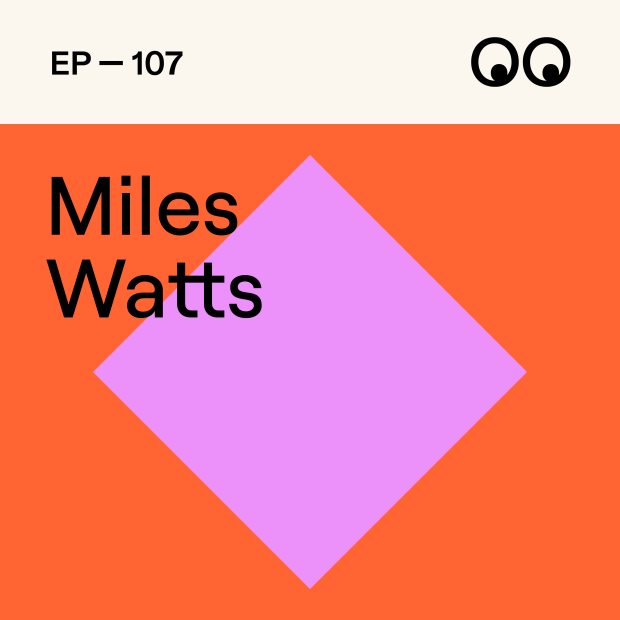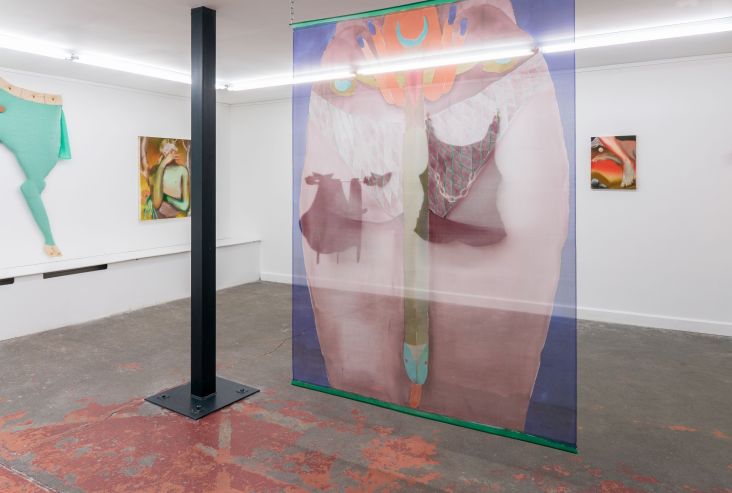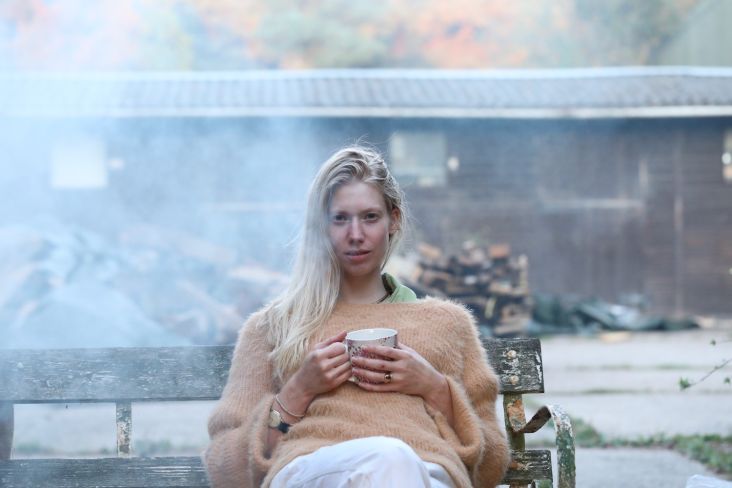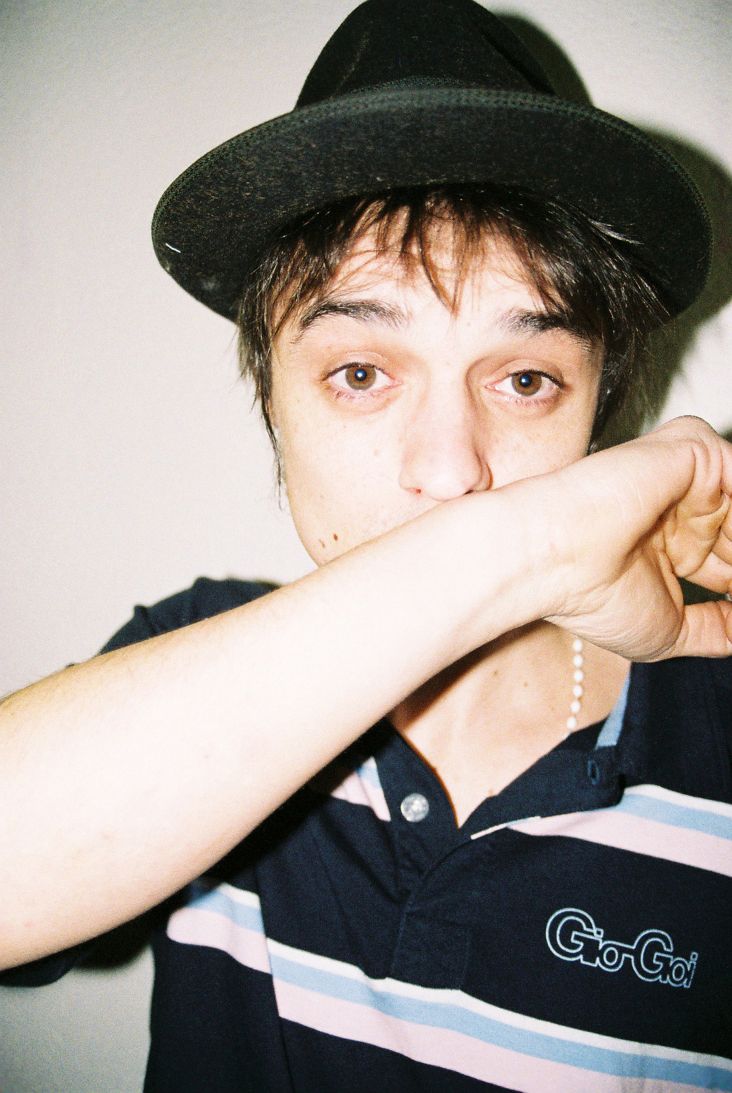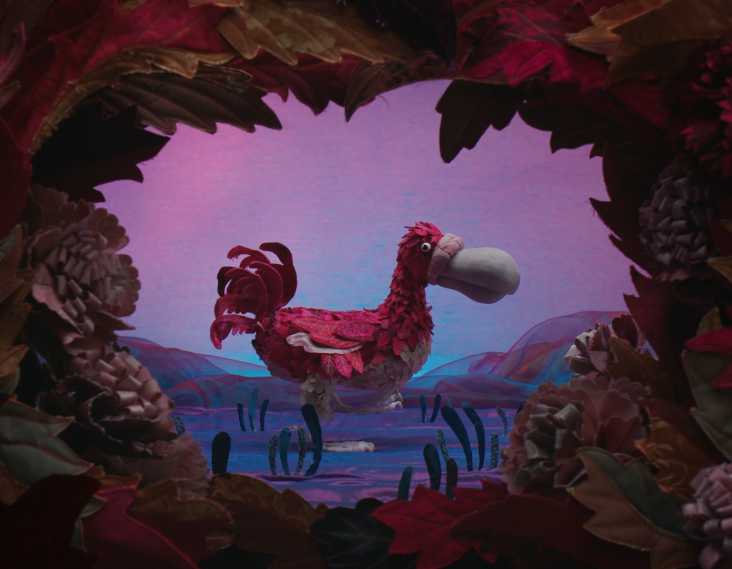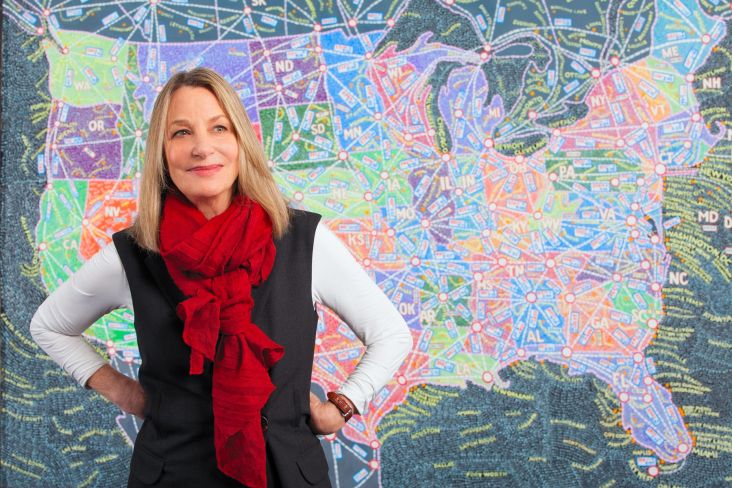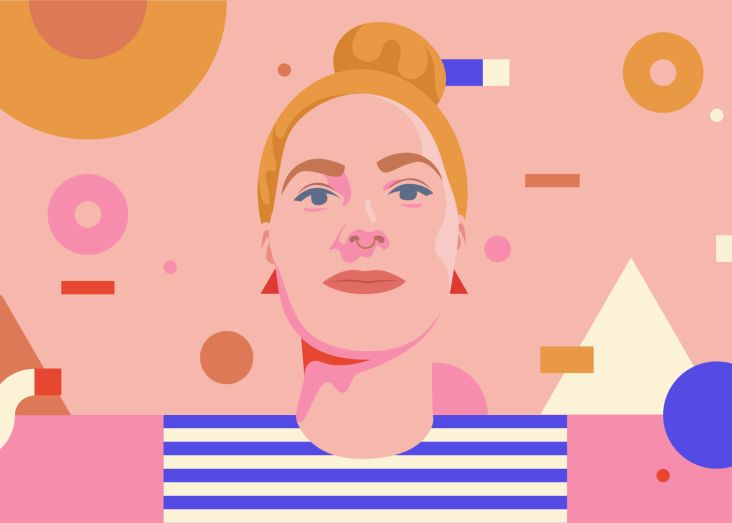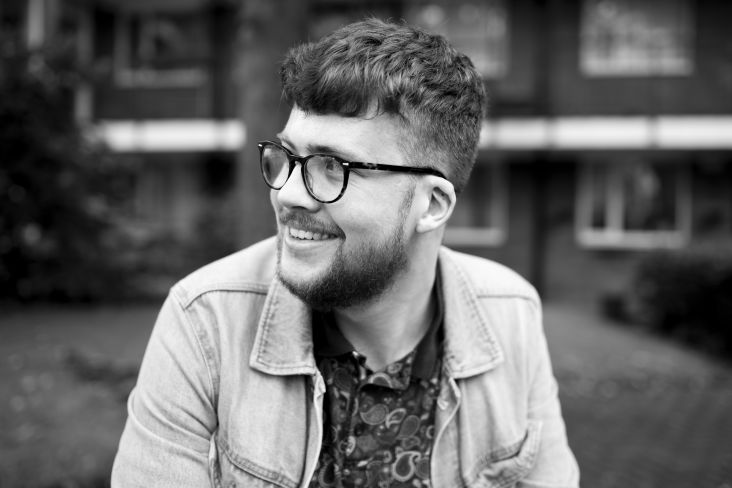Zoë Barker on her success as an illustrator, facing up to 'freelance anxiety' and finding a happier balance
Zoë Barker's intricate illustrations, meticulously outlined with pens or coloured pencils, are softened with a satisfying wash of watercolour.
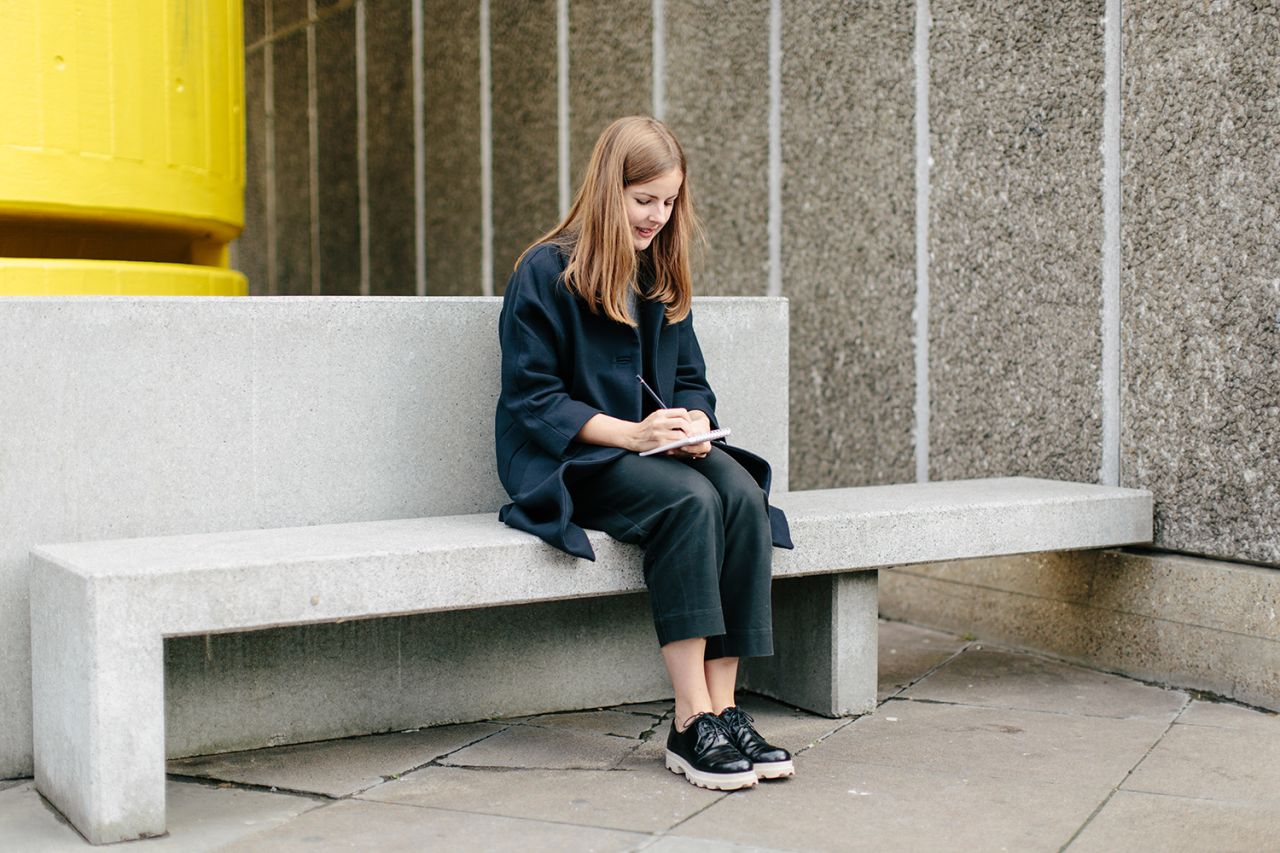
This signature style has caught the attention of many big brands including Virgin, Liberty of London and New Balance. And her drawings have graced the pages of The Telegraph and Creative Review.
Starting out with a degree in fine art and spending much of her early career in London, Zoë has recently swapped life in the capital for a quieter existence elsewhere. There are many reasons why. Some of which are related to being a freelancer and coping with the modern world.
On a wintry Thursday in November, I chatted to Zoë about how she built her reputation as a freelance illustrator and how she's been able to make a living out of her passion.
When did you realise you wanted to be an illustrator?
I wanted to be an "artist" from the age of about 7. I spent pretty much all of my spare time making stuff and drawing pictures when I was a kid – so had my eyes firmly fixed on art school from a young age.
I didn’t, however, realise that I wanted to be an illustrator, or have much of an awareness of illustration until my second year into a Fine Arts degree. I became more excited by contemporary illustrators and really fell in love with drawing. Reapplying to an illustration course wasn’t really a viable option for me – I’d already moved to London from Suffolk and had a taste of life there, and financially I couldn’t fathom starting over, so I made my art degree work for me. I graduated in 2007, bought a Mac and started trying to get work.
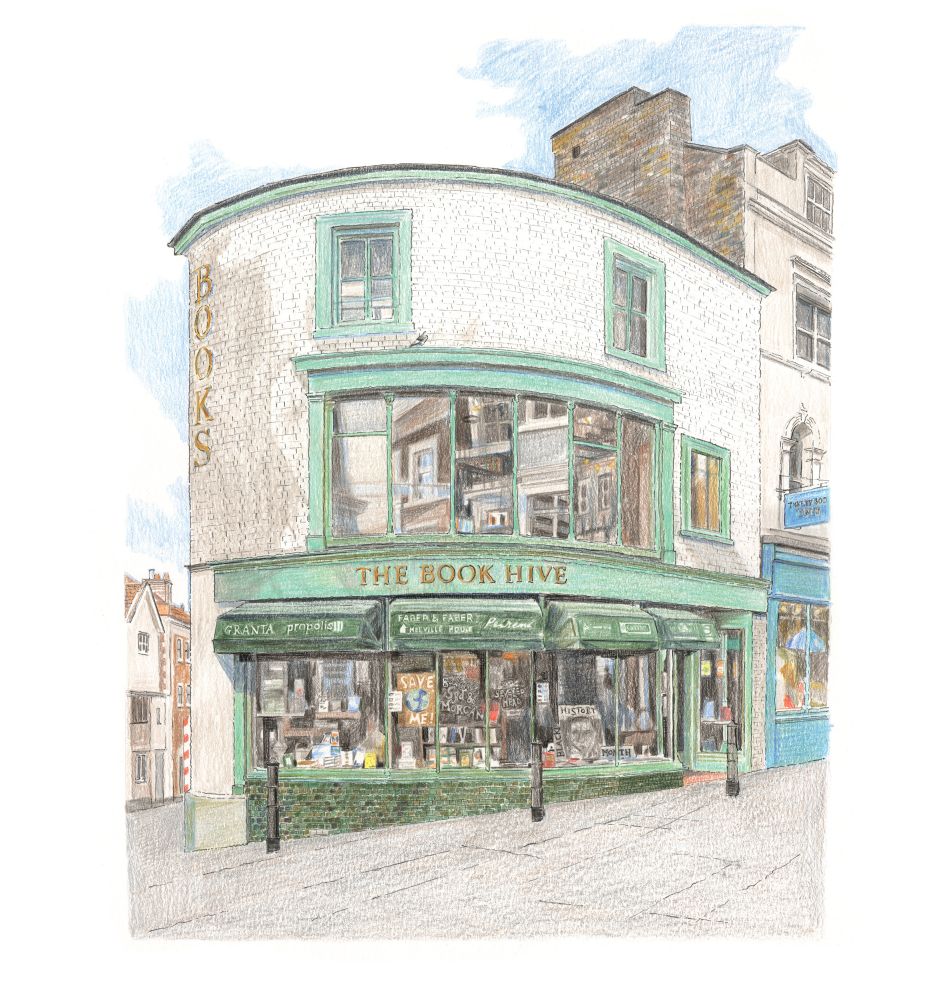
So you immediately became a freelancer?
Ha. I wish. No, I got a full-time job in a coffee shop (I had to pay my rent) and spent all of my spare time working on my portfolio, blogging my drawings, and contacting every art director I could get details for. It was really hard work. I'd graduated with a first and a commendation, but that meant nothing in the real world. I didn't have any other friends who were freelancing at the time and had no idea how to be an illustrator.
But I'm fairly stubborn and optimistic, so I just kept on drawing and hoping. The best thing that happened to me back then was a small design studio who I'd contacted commissioned me to do some illustrations. I remember sitting down to draw, knowing it was my first paid commission (there'd been many unpaid preceding) and feeling like I'd burst with happiness. They took me under their wing and I started working for them a couple of days a week. I did any illustrations they needed, and they taught me how to use Adobe.
I remember my first day, feeling so embarrassed as I didn't even know how to turn on the iMac in the studio. There I learned how to approach a brief, gained a bit more confidence in my illustrations and learned how to chase invoices - possibly the greatest lesson of all.
From there I started doing more and more commissions until I got featured in the first Creative Review Illustration annual for a personal project I'd worked on and self-published. I started to get featured by magazines and was working full-time as an illustrator, and then in 2012, it all went a bit pear-shaped.
I'd suffered from OCD/anxiety since I was a child, but that year it got a bit out of control. I was struggling to spend too much time on my own, which meant that I'd have the most anxiety attacks when I was working/drawing. I came to associate drawing with a horrendous feeling of panic. So I stopped. I deleted my blog as I didn't want anyone to see my work. I didn't reply when people tried to commission me.
And I asked the coffee shop where I worked when I'd graduated – who had been like a family to me – if I could have my old job back. It took me about two years to get a handle on things and to start drawing again. That time wasn't very nice, but it made me reassess my priorities and take my mental health really seriously. Thankfully I managed to pick up where I'd left off, but in a much healthier headspace.
Do you think that exposure caused some of that anxiety?
I think I found that quite uncomfortable, yes. I'm quite a private person, and that felt a bit jarring. But mainly I just struggled with working out how to live a well-balanced freelance lifestyle, before that was such a common thing.
The idea of spending so much time alone, trying to be the best you can at something you've set yourself up to become, with unregulated hours can be a recipe for disaster especially when you're dependant on that for your income. And that's before you add in criticism, tricky clients, or general business management.
But for me, the feeling of being out on my own was a struggle. I didn't have many people who I could ask for advice or guidance back then. I felt like I was stumbling around a bit, I think.
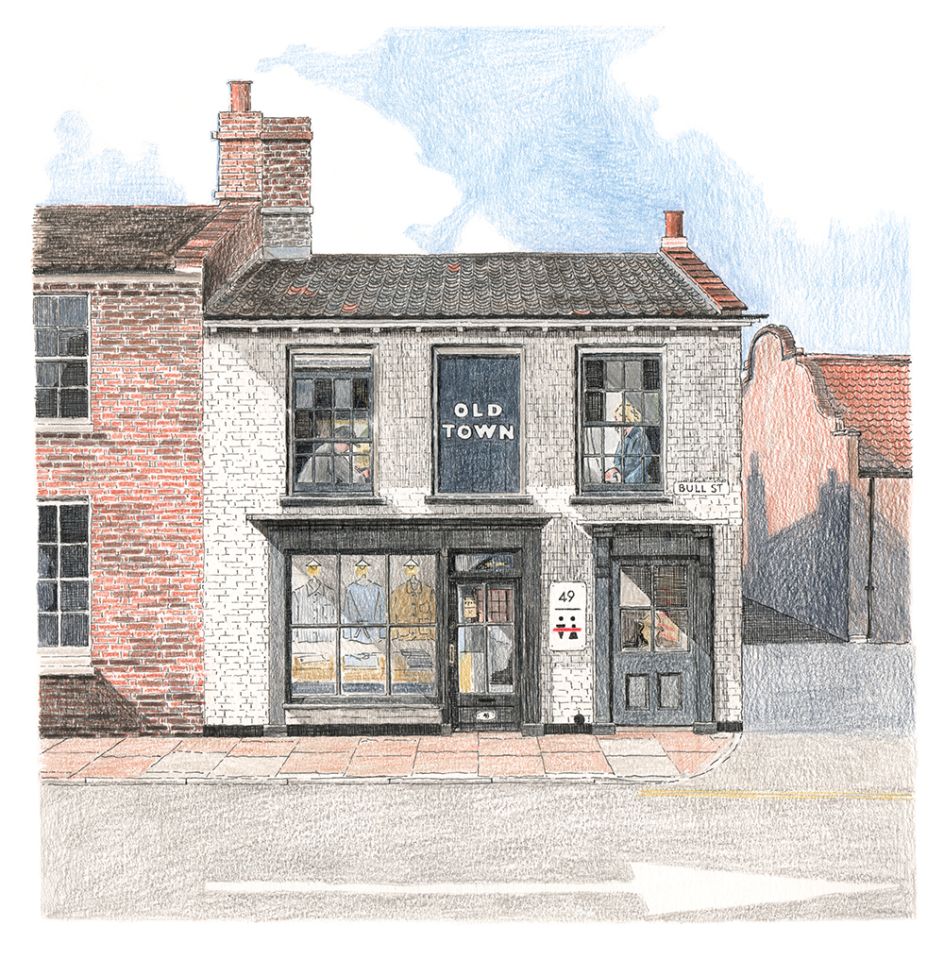
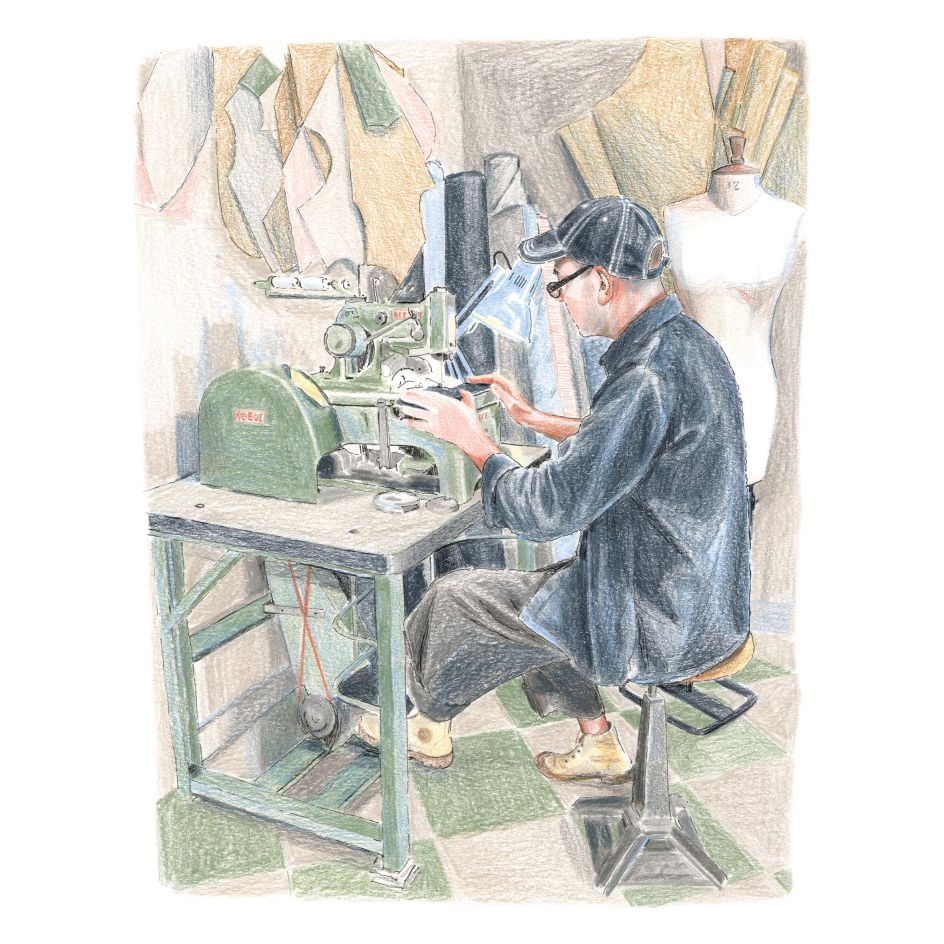
So how did you combat this? Are you still working from home?
There have been a lot of changes since then, to see what works and what doesn't. I'm now very aware that I need clear boundaries in order to feel creative and have a healthy and productive practice. This means I don't work from home anymore, but have a studio that I go to where my work stays – I can take my sketchbook home, but no commercial work. I can do this much more easily since we moved out of London a few months ago – there's much less financial pressure.
It's a shared space so I have lots of lovely people around to have a little chat with. I also have a dog. She's usually asleep by my desk, but her being around means I take regular breaks from my desk and spend more time outdoors.
I'm more aware now of what I need to do to help my anxiety levels. I've tried so many things. But by far the very best is running. It shakes everything off and keeps my head in a good place. Especially when I'm running around the countryside in the mud.
Ah, that's really interesting. So you've found a happy balance away from London. The city life doesn't suit everyone, does it?
It really doesn't. I love London and lived there for 15 years (so it must've been pretty ok!), but I think it's easy to get caught up in thinking that it's the centre of the world, and where all of your creative dreams can come true. It can be a really hard place to live. And I know that if I don't feel calm and grounded, I find concentrating on work really difficult. And don't feel very creative at all.
We recently relocated to Norwich, which is a small city with a big art school, and lots of people doing fun, creative stuff. It's also surrounded by beautiful countryside and close to the coast. When you feel a bit like an island as a freelancer, it's so nice to wander around a city and stop for a chat with someone you know, or pop to see the sea to blow the cobwebs away.
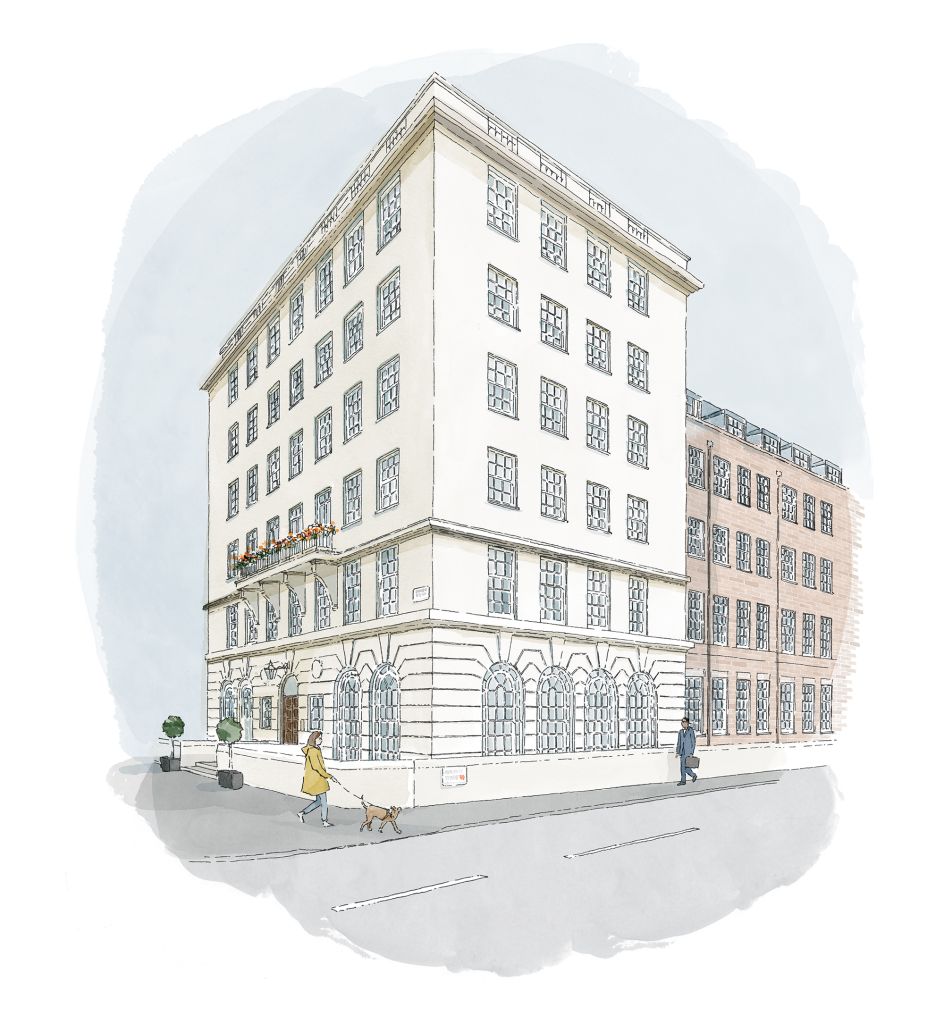
I suppose it's a cheaper life, too, allowing you to jump off the freelance treadmill?
I love my job, but it's not everything. I think coming to the point when I was going to quit it all and retire my pencils was actually quite helpful, even though at the time I was wondering what on earth I would do. It put things into perspective. It's mad how much cheaper life outside of London is. It means I can spend more time on personal projects and also be pickier with what jobs I choose to take on. And also take time off. I'm not very good at that.
It's amazing what a difference it can make, having a cheaper life. Did you crave it but hesitate for a while, as London was difficult to leave?
I feel like I'd been craving it for a very long time, especially having grown up in a tiny town in Suffolk. London was never a natural fit for me. But my husband and I had built a life there. Pretty much all of our friends were there. So it was a daunting move. And of course, it felt like there are so many opportunities in London. But it was also getting harder to return to, when we'd been out of it for a holiday or to visit family. We could see the quality of life we could have outside of London. And sometimes it's just great to have a change!
I think it's a modern dilemma, this fear of missing out. Moving on, has your work changed with your new lifestyle?
I agree. And constantly comparing ourselves to each other. I feel like I'm enjoying my personal work more. I think I feel more inspired (forgive the cliche). I have more physical space to work in, which is so great, and much more practical – so I'm working on a slightly larger scale. I've been drawing some local businesses, like small independent shops and makers. Partly as a way to meet people, and partly because I really admire what they're doing.
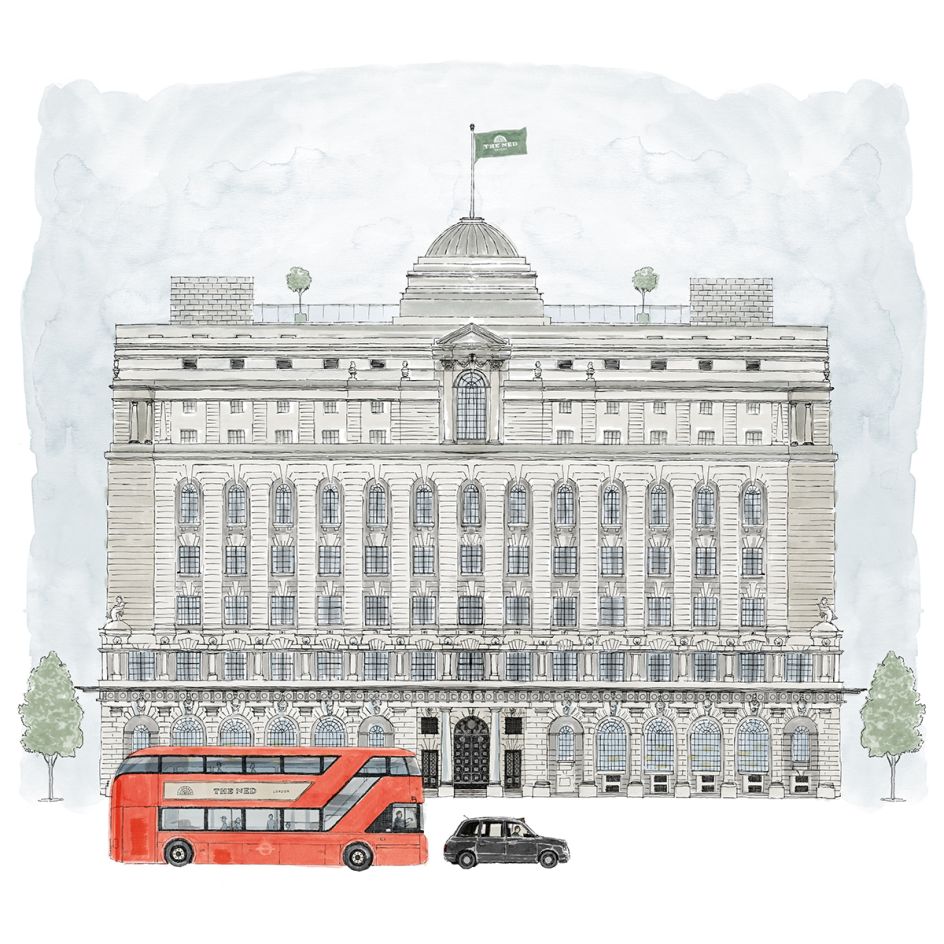
It's great to hear you've got your spark back. How would you describe your work these days?
I'm really enjoying my work at the moment. I know that might sound like a given, but I go through phases. I'm drawing a lot in my spare time which impacts this. I'd say colour, sensitivity, and craft would be the things that would describe my work at the moment. I'm loving mixing up colouring pencil, pen and watercolour, and documenting things I'm really interested in.
As I mentioned, I'm currently working on a project which is all about independent shops and makers – people I really admire. I feel inspired by those who have really dug down and honed their craft or trade, whether they're making art or just doing their job really well. I think that's essentially what I'm trying to do too.
How do you find work?
Lots of it comes through referrals or from clients who I've worked with before. I try to give my best to every project I work on, but also to be nice to work with. Anthony Burrill's 'Work Hard and Be Nice to People' is so popular because there's no better motto. I also contact people I admire, who I'd love to work with.
Finally, what advice would you give to aspiring illustrators out there, hoping to make it?
I once heard Aries Moross speak at a design conference many years ago, and gave the advice 'Build it and they will come'. I've always remembered that. I think you've got to stick to your guns with what you want to do and who you want to be. And then see where that might fit. It's easy to see a trend and jump on that and make yourself fit, but I think the best illustrators stand out because their personalities show through their work and they have developed it through years of experimentation and practice.
My second bit of advice would be that shifting something you love, and which is probably your greatest hobby, to how you create an income can sometimes be quite a hard transition. I've found it helpful to have personal projects running alongside my professional work – sketchbooks particularly. This is where I can experiment and play the most, and it’s also work I don’t have to show anybody if I choose not to.
I've also found it helpful to have other creative outlets so I can take a break from drawing when I need some headspace or am stuck on ideas. When I come to a bit of a drawing block I jump on my sewing machine. I did a course in pattern cutting a few years back, at the time when I found drawing impossible and was somewhat frozen with anxiety. It's also a healthy reminder that my identity isn’t just 'illustrator'.
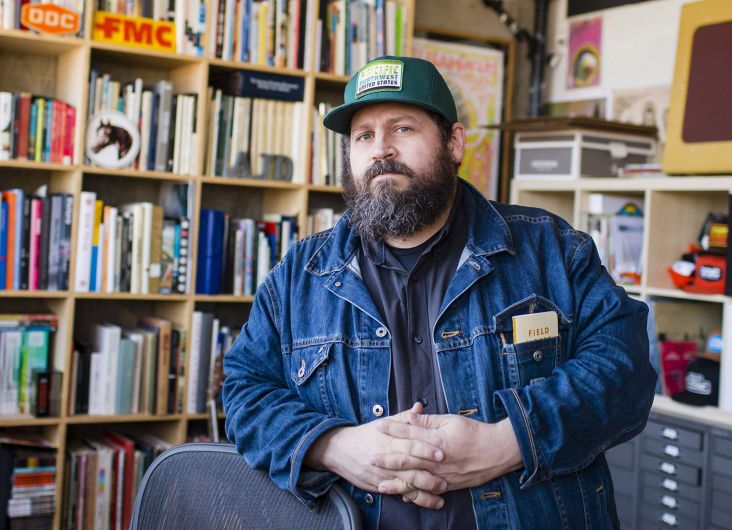
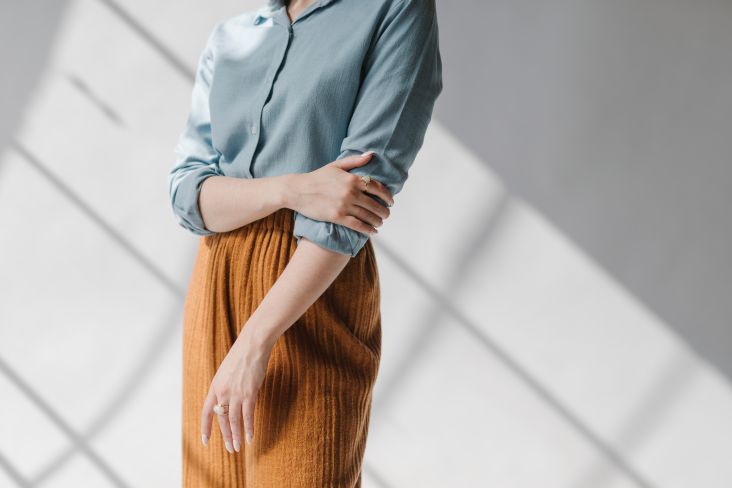
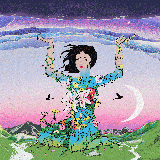
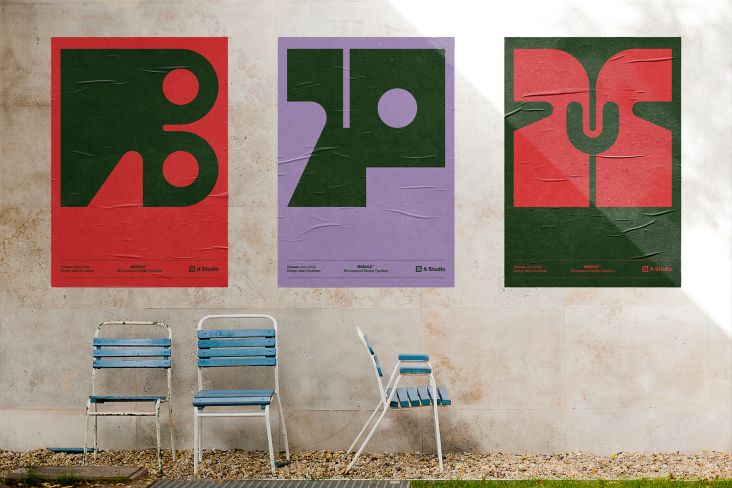
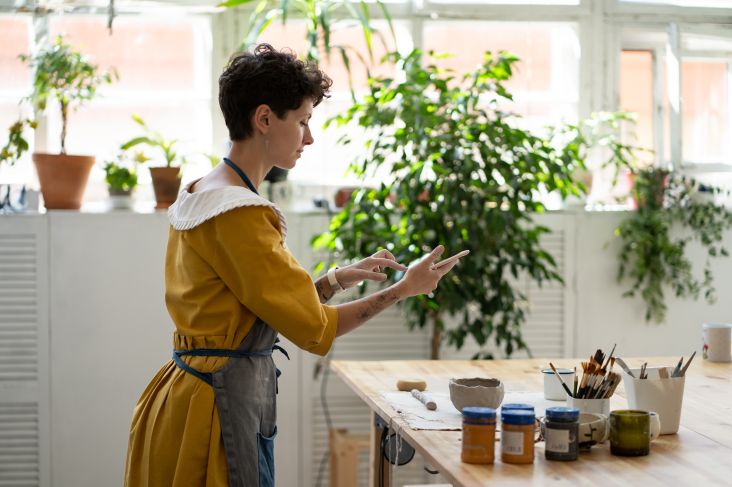
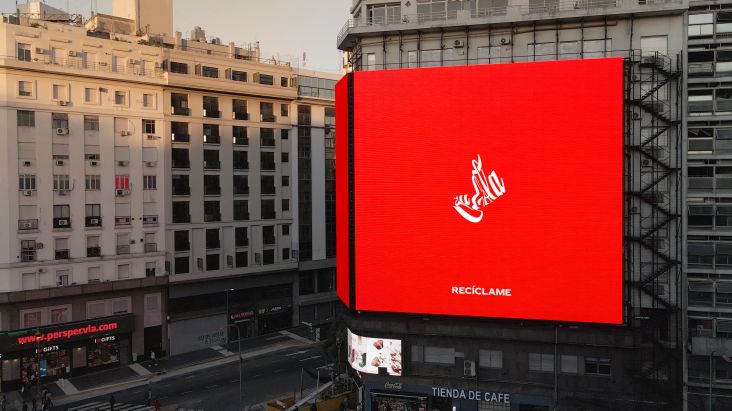
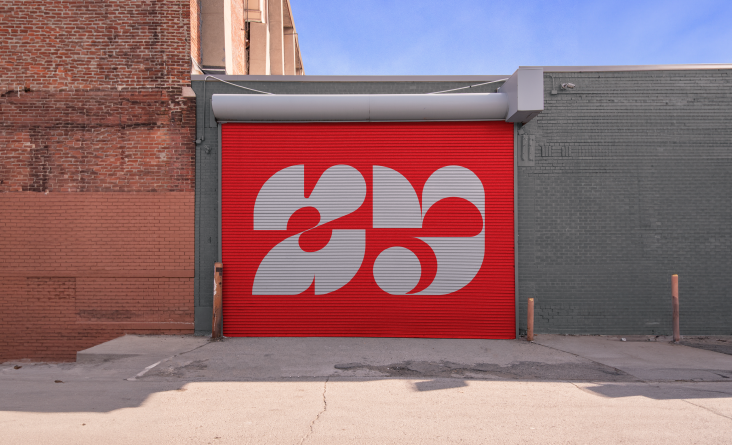
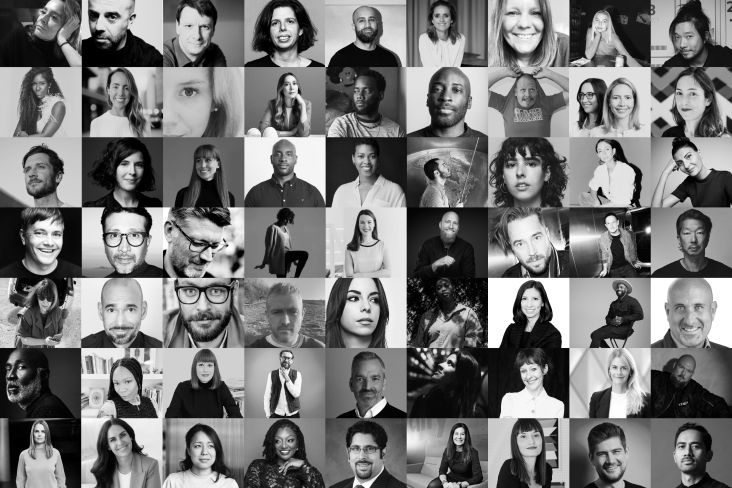
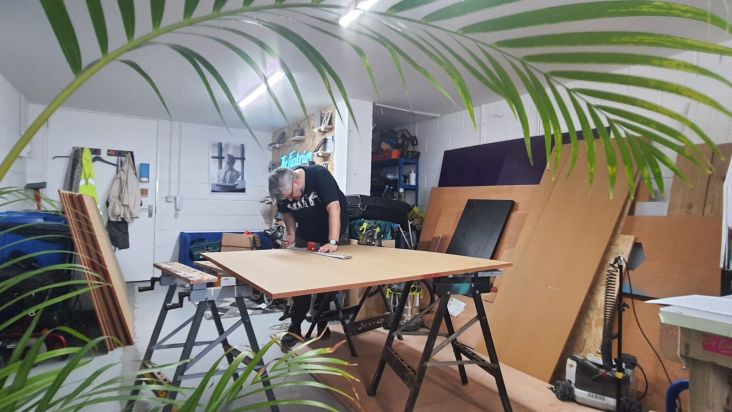
](https://www.creativeboom.com/upload/articles/86/862919952c0ad18439004228895a431dc6e45ffc_732.jpg)
